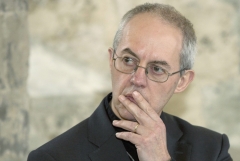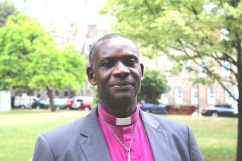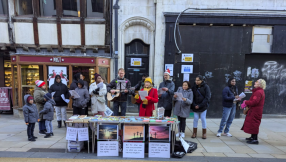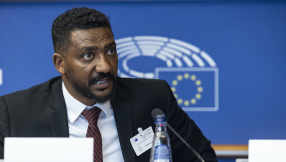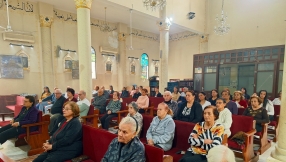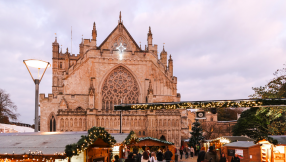The Archbishop of Canterbury has summoned his Archbishops and other church leaders to a meeting at Canterbury next January to try and move forward after decades of division over women priests and homosexuality. This is not the beginnings of the end of the Anglican Communion. It is not a divorce. It is more a move to an open marriage, or at the least, separate bedrooms in the same house.
On this rock I will build my church, Jesus tells Peter at the start of our Christian era. The subsequent two millennia has seen an apparent shattering of the rock. Times change, rarely so fast as in the present era, and faced with differing interpretations of doctrine and an unchanging Bible, Christians struggle to keep up and reconcile. The One Church has split and split again. The Creed, the relationship of the Father to the Son, the Reformation, Biblical redaction, women priests, gay marriage: each has left in its wake another new church or 12. As the centuries have progressed, the pragmatic theology of compromise has been too easily dismissed as heresy or hypocrisy.
We know from this same passage of the Bible, in Matthew, that hades itself will not overcome God's church. So we must see a way to faith that the Archbishop of Canterbury's call to the 37 other Primates who head the worldwide Anglican Communion is ultimately a step towards and not away from unity.
The figure of 85 million is cited by the Anglican Communion office as a guide to membership of its 44 different churches worldwide, in 38 provinces and six national or local churches. It is not clear precisely how this number is arrived at, although information from the World Council of Churches is used as well as local attendance. On the WCC website, CofE membership is listed as 25,000,000 although on its own website, it is a small fraction of that, at about a million. The 25 million figure is closer to the overall number of baptised.
Whatever the precise facts of Anglican Communion membership, it is but a speck in the sand compared to the 1.2 billion Catholics worldwide. Numbers are not everything. The present organisation of the Anglican Communion is a relic of British colonialism. Its map mirrors the former Empire, when Britain was called "Great" without irony. The Queen, the Supreme Governor of the Church of England reigned over all of this, the Archbishop of Canterbury merely primus inter pares or first among equals of his primates. Cantuar could never be an Anglican Pope. Much to the frustration of many, his authority has always been spiritual, not juridical. The result has been something approaching chaos, as even the most Orthodox, such as the blogger Archbishop Cranmer, have recognised. But that is at an organisational level. There is another, much more important level. One reason the Anglican Communion must survive is because of the work done behind the scenes, especially in aid of persecuted Christians and other minorities in provinces around the globe. This is why Rowan Williams, Welby's predecessor, fought so hard to save it. This vital work cannot be allowed to lapse because of rows over gays and women.
Ecumenical relations, especially moving towards the dream of unity with Rome, have always been at the fore of any considerations about reforming Anglican structures. The present organisation mirrors a catholic model with a clear episcopal hierarchy, the Archbishop at the top. This Archbishop wields his spiritual authority with a startling charisma that effects change, metanoia.
Since women were ordained by Anglican churches, the prospect of unity with Rome has receded for the forseeable future. There is really no point even trying to go down that road at present, even with the radical Pope Francis in Rome. So there is nothing now to stop the Anglican Communion changing itself. The move towards a more federal model, an Anglican Federation along the lines of Europe's Lutheran Federation, is a much better model for the Church in today's world. Within such a federation, there lies the real tantalising prospect of a return to the fold of many if not all the continuing churches that have seceded from different churches at different stages. It significant that Archbishop Foley Beach of the orthodox evangelical Anglican Church in North America has been invited by Archbishop Welby to January's Primates' Meeting.
Thus from this Archbishop, whose years in the world of secular finance and industry have taught him the futility of fighting reality, has emerged a vision of what might happen if the Anglican Communion can "let go and let God". Allowing the bonds to loosen will release the considerable tension of these past fractious centuries. It will allow the lost sheep of the Anglican family to return to the fold, the prodigal sons and daughters to be welcomed home with feasting and rejoicing. For the first time in centuries, the prospect of real unity is in sight. Let us pray that Anglicans have not lost faith in what they cannot yet see.











